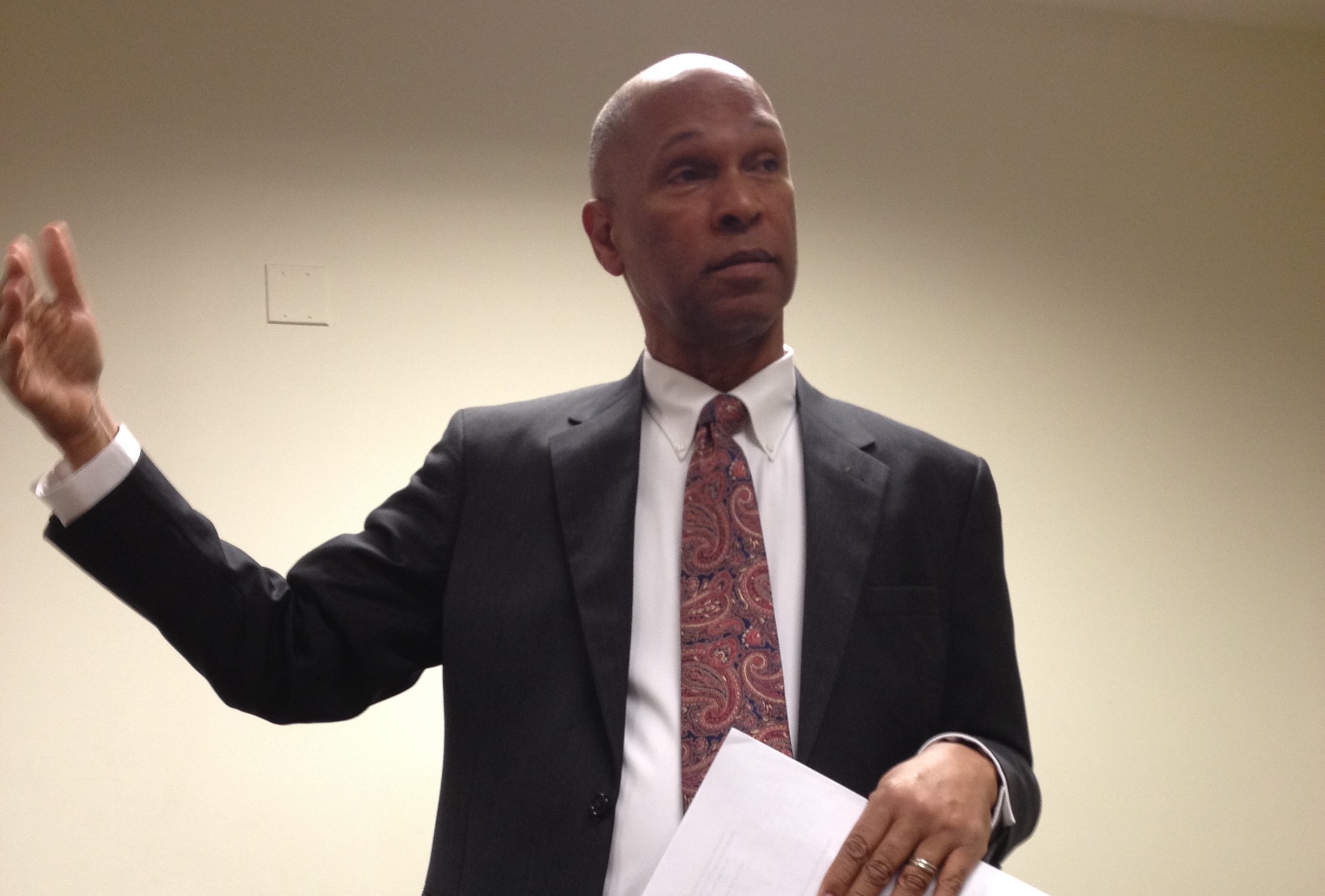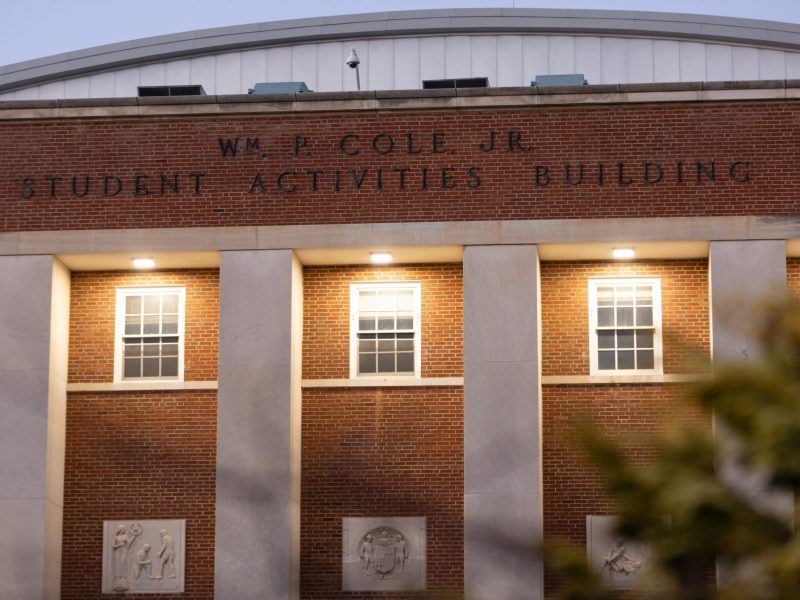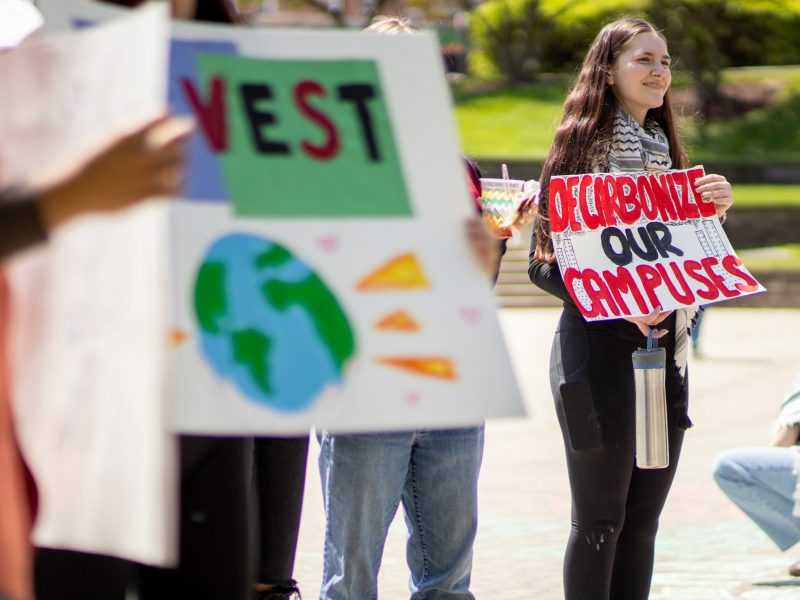By Jacob Strom
For The Diamondback
A University of Maryland alumnus and author spoke to about 30 people Tuesday night about his experience with race relations in the United States over the past 68 years.
Maurice Dorsey spoke in Stamp Student Union’s Benjamin Banneker Room about his book — Businessman First, a biography of pioneering African-American businessman Henry G. Parks Jr. — as well as his own experiences with racism growing up.
“There was a school walking distance to my front door, but because the schools were segregated at that time, I had to be bussed to achieve racial segregation,” he said.
Dorsey was not allowed to go to an integrated school until he reached 11th grade. By the time he started attending an integrated school, his parents had moved next to the old segregated school, so he needed to be bussed again.
“I was bussed to achieve segregation, then I was bussed to achieve integration,” he said.
After receiving his high school diploma in 1965, Dorsey graduated from this university with a home economics degree in 1970. He then went on to earn two master’s degrees from Loyola University Maryland and Johns Hopkins University, as well as his doctorate in education from this university in 1985.
Dorsey stressed to the audience the importance of overcoming the people and situations that seek to marginalize a person based on his or her identity.
“You cannot hold on to the negativity of your past,” he said. “You need to look forward and give yourself a sense of self-identity.”
The theme of pursuing success in the face of difficulty continued when Dorsey spoke about the subject of his book, Parks, whose business, Parks Sausage, in 1969 was the first African-American-owned business to offer public stocks nationally.
Dorsey said he was passionate about achieving success, despite how other people might have felt about his racial identity.
Victor “Apollo” Harrington, a junior communication major, said this event gave inspiration.
“To see the success of people and to see where they came from to get their success, you see the opportunities that you have now, today, to get success,” he said.
Christopher Perez, the associate director at the graduate school’s Office of Graduate Diversity and Inclusion, was similarly inspired by Dorsey’s lecture. But he said he particularly appreciated the variety of voices that were heard at this event.
“We have very different generations speaking with each other here, and I thought that was important, especially in the context of Black History Month,” he said.
Dorsey’s talk was sponsored by Office of Graduate Diversity and Inclusion, the Pepsi Enhancement Fund and the education college as part of a spring series intended to promote intellectual discussion about diversity on the campus.



